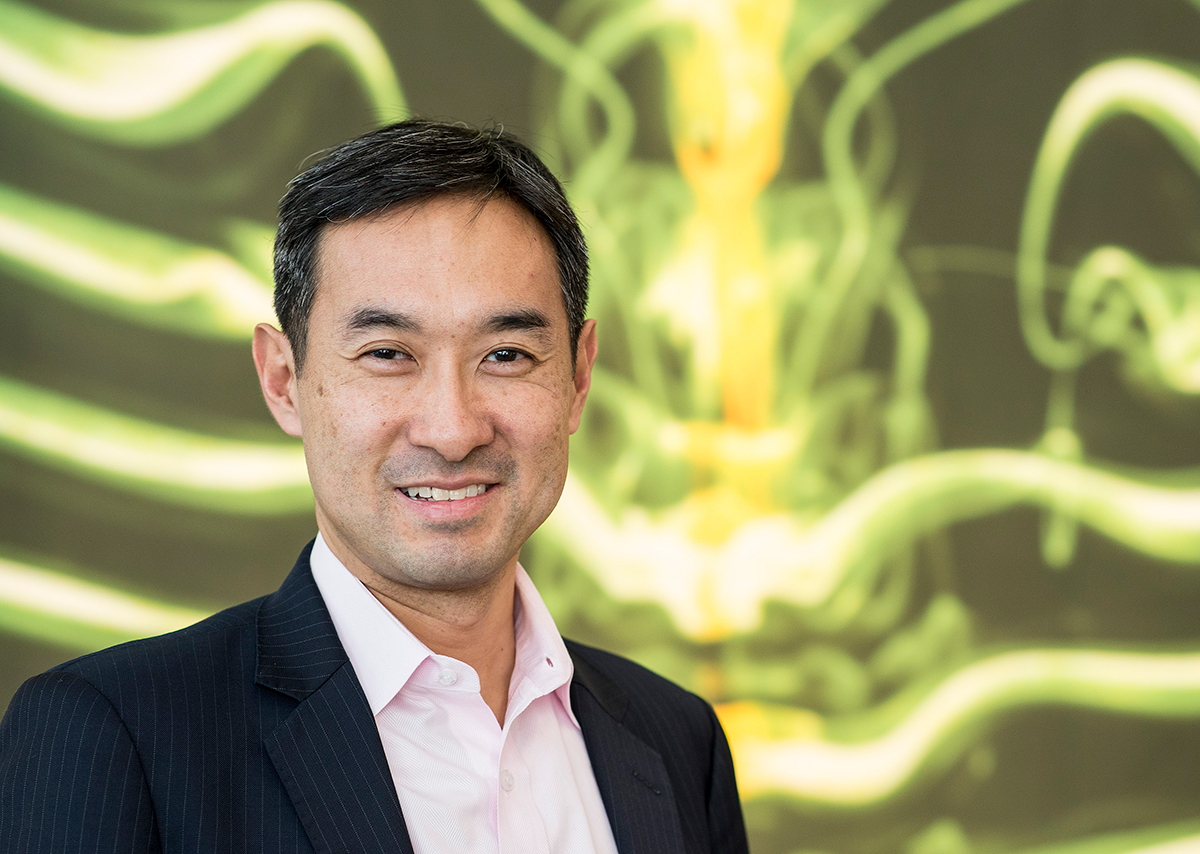Cornell Neurotech launched with multimillion dollar gift
By Linda B. Glaser

Cornell Neurotech, a collaboration between the Colleges of Arts and Sciences and Engineering, will launch thanks to a multimillion dollar seed grant from the Mong Family Foundation, through Stephen Mong ’92, MEN ’93, MBA ’02. The goal of Cornell Neurotech is to develop technologies and powerful new tools needed to reveal the inner workings of the human brain, with a particular focus on how individual brain cells and complex neural circuits interact at the speed of thought.
“I’ve been looking for a way to help Cornell to leverage its strengths in cross-campus multidisciplinary collaborations,” said Mong. “It will take the capacity of the College of Engineering and the capabilities of the physical scientists in Arts and Sciences to put this together.”
“Solving the mystery of how circuits in the brain produce our behavior, thoughts and feelings is one of the most important scientific frontiers in the 21st century,” said Gretchen Ritter, the Harold Tanner Dean of Arts and Sciences. “The Mong Family Foundation has a long and distinguished history of commitment to health care research and education, and we are grateful for their support on this initiative. We are also pleased to be working in partnership with our colleagues in the College of Engineering on this effort.”
Said Lance R. Collins, the Joseph Silbert Dean of Engineering: “The puzzle of the brain will be revealed using the groundbreaking multiphoton imaging pioneered at Cornell and adapted for this vitally important application. Through this technology we will have unprecedented access to brain circuitry in real time, revealing the map that enables bundles of neurons to produce consciousness and reason. We’re deeply grateful of the Mong Family Foundation’s vision and shared interest in this important initiative.”
President Obama’s BRAIN (Brain Research through Advancing Innovative Neurotechnologies) Initiative has given national prominence and a sense of urgency to the challenge of understanding the brain. Cornell Neurotech’s objective will be to help solve the mystery of the brain and how it produces our behavior, thoughts and feelings, giving the foundation to understand profound behavioral deficits from Alzheimer’s disease, schizophrenia and autism disorders.
Cornell has long been a world leading institution in neurobiology, engineering, computational biology, chemistry, applied physics and the life sciences, all critical areas in advancing understanding of the brain. “The broad interdisciplinary strength of Cornell in these areas uniquely positions us to reveal how brains produce the actions, thoughts, feelings and memories that make us who we are,” said Joseph Fetcho, co-director of Cornell Neurotech and professor of neurobiology and behavior. “The wonderful gift from the Mong Family Foundation will catalyze the interdisciplinary efforts needed to develop and apply novel technologies to transform our understanding of the brain. I am honored to be a part of those efforts.”
Cornell faculty are developing new technologies that reveal the structure and function of brain circuits in intact, behaving animals, and have already achieved the deepest ever brain imaging at a cellular level in a living mammal.
“Developing new scientific tools is critical to understanding the brain and the neurological illnesses that affect it,” said Chris Xu, co-director of Cornell Neurotech and professor of applied and engineering physics. “New technologies and discoveries are waiting to be realized, and I couldn’t be more excited about the prospect this gift brings to our interdisciplinary research collaborations here at Cornell. I’m honored to help lead this innovative program that the Mong Family Foundation has made possible.”
The co-directors anticipate Cornell Neurotech’s collaborations quickly expanding beyond their two colleges to include partnerships with the College of Veterinary Medicine and the fMRI facility in the College of Human Ecology, as well as faculty in the College of Agriculture and Life Sciences.
The Mong gift will be used to seed collaborative efforts across campus at the interface of technology and brain, including funding that will enable research fellows to pursue innovative technologies and experiments. The gift also will support the Cornell Neurotech Mong Family Foundation Seminar Series, which will bring individuals at the forefront of neurotechnology to campus.
Linda B. Glaser is a staff writer for the College of Arts and Sciences.
Media Contact
Get Cornell news delivered right to your inbox.
Subscribe